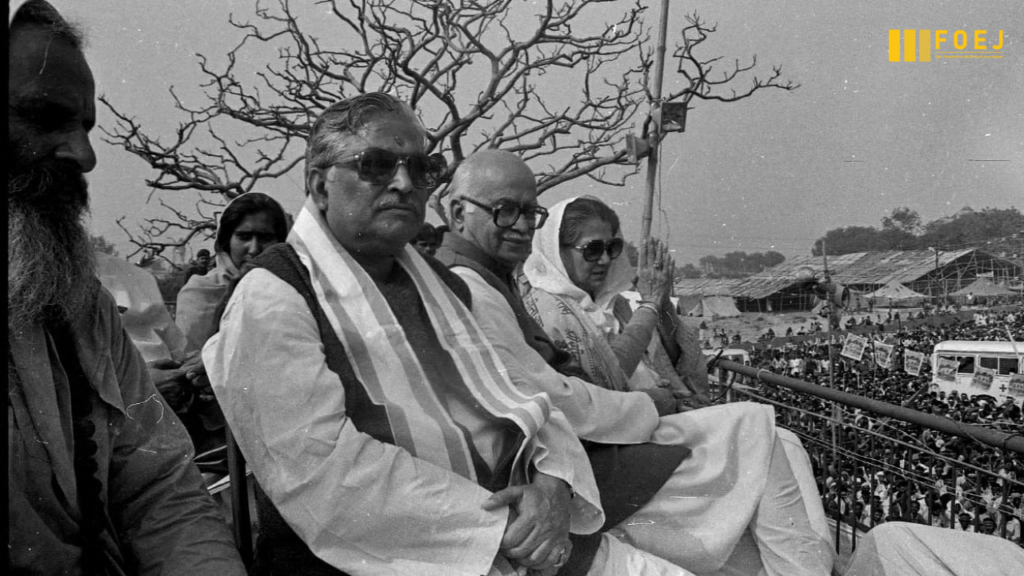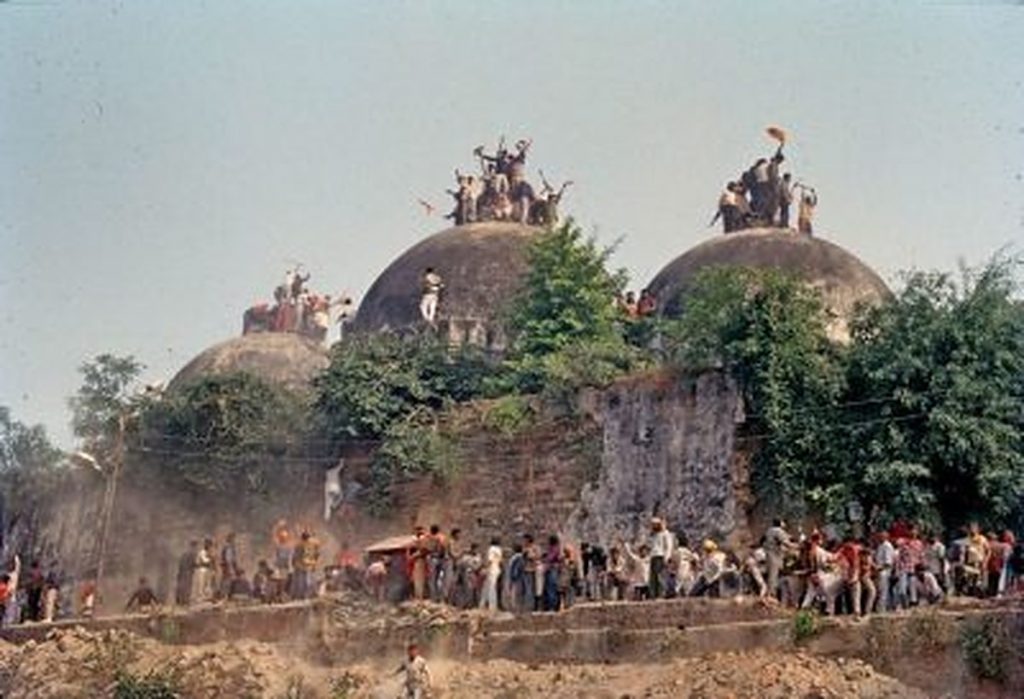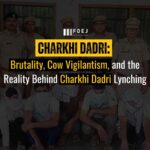Bharatiya Janata Party (BJP) veteran Lal Krishna Advani, known for his role in the Rath Yatra has been selected for the prestigious Bharat Ratna. This announcement comes ten days after the government’s decision to honour socialist icon Karpoori Thakur.
LK Advani, a former Deputy Prime Minister and multiple-term BJP national president, played a crucial role in shaping the party’s destiny. Despite missing out on the position of Prime Minister and being overshadowed by AB Vajpayee, Advani’s decades-long service in public life has been noted.
Prime Minister Narendra Modi, expressing deep emotion, emphasised Advani’s monumental contribution to India’s development. From working on the ground to serving as Deputy Prime Minister, Home Minister, and Information and Broadcasting Minister, Advani’s parliamentary interventions provide a rich sight in shaping the nation’s journey.
“Advani-ji’s decades-long service in public life has been marked by an unwavering commitment to transparency and integrity, setting an exemplary standard in political ethics. He has made unparalleled efforts towards furthering national unity and cultural resurgence. The conferring of the Bharat Ratna on him is a very emotional moment for me,” the Prime Minister said.
The Political Journey of Advani
His role during the time of emergency and his companionship with Atal Bihari Vajpayee during the foundation of the BJP in 1980 are well known. 1992 became a crucial part of his political career when he was among those who led the Ran Janmabhoomi movement from Somnath to Ayodhya in the autumn of 1990, resulting in the demolition of Babri Masjid, almost a 500-year-old edifice.
In 1989, the Bharatiya Janata Party (BJP) announced its ambitious political agenda, centering around the construction of a Ram temple on the disputed land in Ayodhya, where the Babri Masjid had stood for over four centuries.

“The choice of Somnath as the starting point of the yatra had a powerful symbolic value, made evident by repeated references to it as the target of Muslim tyranny against the Hindus… The intention was to contextualise Ayodhya in the historical lineage of Muslim aggression and then to seek legitimacy for the Mandir movement by drawing a parallel. The parallel the Sangh Parivar drew was with the reconstruction of the Somnath temple.” Advani justified this approach in his 2008 book, “My Country, My Life.”
The Rath Yatra, marked by Advani’s public display of weapons like the Trishul, axe, sword, and bow and arrow, was marred by large-scale violence, rioting, and killings. Advani and his associates were eventually arrested in October 1990 by the Bihar government.
Two years later, on December 6, 1992, the Babri Masjid was demolished by a mob of karsevaks led by BJP leaders, with Advani reportedly playing a key role. A police officer testified that Advani made a provocative speech before the mosque’s destruction, and witnesses claimed that the BJP leaders, including Advani, did not attempt to stop the demolition. Subsequent investigations implicated Advani, along with others like Murli Manohar Joshi, in the criminal conspiracy in connection with the Babri Masjid demolition.
Also Read: https://foej.in/31-years-on-a-poetic-tribute-to-babri-mosque-demolition/: Bharat Ratna Award to L.K. Advani: What lies beneath?Leagal Journey
In 2001, the Allahabad High Court dropped the criminal conspiracy charge, but in 2017, the Supreme Court reinstated it, stating that the act had shaken the secular fabric of the Constitution. Some Kar Sevaks stated that Advani and other BJP leaders had instructed them to demolish the mosque in 2017.
The Supreme Court directed the Sessions Court in Lucknow to finish the trial within two years, and in July 2019, the Supreme Court extended the deadline by another nine months. On September 30, 2020, a special CBI court in Lucknow acquitted all 32 accused, including Advani, due to a lack of conclusive evidence. The court stated that the act was not pre-planned.
On November 9, 2022, the Allahabad High Court dismissed a plea against the acquittal of Advani, Uma Bharti, Joshi, Kalyan Singh, and others in the Babri Masjid demolition case. Two Muslim residents of Ayodhya had filed the plea.

A total of 32 people were accused in the Babri demolition case. The case involved figures like Sadhvi Ritambhara, Nritya Gopal Das (president of the existing Ram Mandir Trust), Uma Bharti, and BJP leader Vinay Singh, who led the Ram temple movement.
Advani, now leading a relatively quiet life, was moved to the “margdarshak mandal” after Narendra Modi became the prime minister. In 2019, Advani was passed over for the Lok Sabha ticket from Gandhinagar in favour of Amit Shah.
Advani’s political career has seen a decline, with his relative obscurity after being sidelined by his follower Narendra Modi. Despite no longer serving as an MP, the Modi government allows Advani to occupy a Lutyens bungalow on security grounds, highlighting the complex legacy of a controversial chapter in Indian history.
Also Read: https://foej.in/a-glimpse-of-new-india-celebrations-or-torment/: Bharat Ratna Award to L.K. Advani: What lies beneath?Bharat Ratna, killing two birds with one stone
The decision to confer Bharat Ratna on Advani, the 96-year-old leader, was hailed as an emotional moment by Prime Minister Modi. Having interacted with Advani and learned from his experiences, Modi considers it a privilege to honour a committed member who has played a crucial role in the party’s journey.
The announcement was made at a strategic time, just after the immigration ceremony of the Ram Temple, which is important for the Sangh Parivar. The government’s choice to announce awards for Thakur and Advani separately before the Lok Sabha elections is seen as the BJP’s effort to gain political advantage.
Thakur’s announcement followed an event in Ayodhya on January 22, where the JD (U) joined the NDA, weakening the opposition I.N.D.I.A. The question is if the BJP aimed to outshine the opposition on’social justice’ by honouring Thakur. Similarly, honouring Advani, who had differences with the party over Modi as the Prime Ministerial candidate in 2014 and had praised Pakistan founder Mohd Ali Jinnah, could be seen as an attempt to appeal to party loyalists.









